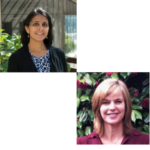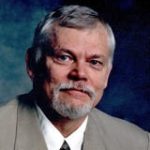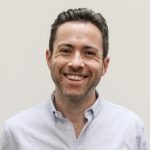Anjum Hajat co-authors with Katherine Beckett an Opinion for Seattle Times on Covid-19 Implications for Incarcerated Persons
|
In a recent published in The Seattle Times, Katherine Beckett from the UW’s Department of Law, Societies, and Justice (LSJ) and CSDE Affiliate Anjum Hajat detail how a COVID-19 outbreak in prisons and jails could be a death sentence for those incarcerated—especially due to the expanding population of incarcerated elderly individuals and a severe lack of adequate health care in prisons. Additionally, a limited capacity for social distancing and a lack of access to cleaning materials including soap are each compounding factors that make the prison population severely vulnerable to the illness. Therefore, Beckett and Hajat urge leaders to immediately adopt “prevention efforts… to avoid needless deaths…in addition, immediate steps should be taken to release the most medically vulnerable people.”
(read more)
|
 |
David Swanson Forecasts the Covid-19 Surge Peak in Whatcom County, WA
|
CSDE Regional Affiliate David Swanson predicts that, without immediate action from leadership in Whatcom County to gather necessary resources, the coronavirus will surge to a massive peak in the county by April 25th. His projections were published in the Northwest Citizen on March 30, updated on April 3 and then informed another article about hospitalizations, also in the Northwest Citizen on April 6. Swanson calculated this forecast by using confirmed cases from the COVID-19 website set up at Johns Hopkins University. With these data, Swanson “constructed a simple, extrapolative geometric model that is used to forecast confirmed cumulative and new COVID-19 cases by day to April 25th.” This peak will result in potentially harmful local consequences, especially in overwhelming Washington's health care systems. Swanson’s recent update depicting results of social distancing measures—demonstrates that the number of peak cases will be lower than the initial prediction.
(read more)
|
 |
Jake Rosenfeld Featured in NYT on Labor Organizing Around Working Conditions during Covid-19
|
Workers from large corporations such as Instacart, Amazon, and Whole Foods are organizing strikes and protests for enhanced safety measures and sufficient pay to compensate for risky working conditions. In a recent New York Times article, CSDE Regional Affiliate Jake Rosenfeld provided expertise on the effectiveness of workers’ actions. Rosenfeld explains that organizing is generally unusual in declining economic times. Rosenfeld also suggests that he is “skeptical that these kinds of protests would achieve much without help from legislation or unions.”
(read more)
|
 |
UW’s Population Health Initiative Announces Covid-19 Rapid Response Grants
|
The Population Health Initiative has launched a COVID-19 rapid response grant program to support the University of Washington research community in quickly responding to the vast array of population health-related challenges created by the COVID-19 pandemic. Awards of up to $20,000 each are available. The initiative will fund at least five grants, with one of the awards supported by the university’s Office of Global Affairs. The period of performance for these awards is four months. Applications are due on April 16, 2020. The purpose of this funding call is to rapidly accelerate, or jumpstart, novel research designed to better understand or mitigate the impact of COVID-19 on multiple facets of life.
(read more)
|
 |
Helpful Information on Student Loan Relief during Covid-19
|
Recent legislation, such as the Families First Coronavirus Response Act and the Coronavirus, Aid, Relief, and Economic Security (CARES) Act, has provided some financial and tax relief. Student loan payments are automatically deferred until Sep. 30, 2020. Anyone with almost any kind of federal student loans (with some exceptions) will have their payments automatically suspended for up to six months with no accrual of interest. These six months will, however, still count as progress towards forgiveness under Public Service Loan Forgiveness (PSLF) or any Income-Driven Repayment Plan, such as Pay As You Earn (PAYE), Revised Pay As You Earn (REPAYE) and Income-Based Repayment (IBR). This expands and extends the student loan interest accrual and payment freeze that has been in place since March 13, 2020.
(read more)
|
 |
|
|

